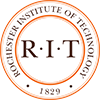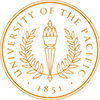Canadian universities are renowned for their academic excellence, offering a wide range of programs and courses at both the undergraduate and graduate levels. Many Canadian universities also offer programs and courses in English, making it easier for Indian students to adjust to their new environment.
The cost of studying in Canada is generally less expensive than in the United States and other countries, and the Canadian government offers various financial aid and scholarship options to help offset the cost of tuition and living expenses.
Additionally, Canada is known for its high quality of life, safety, and multiculturalism, which can make it easy for Indian students to find a sense of belonging and community. However, Indian students must meet the specific requirements of the institution they wish to attend, such as language proficiency and visa requirements.
Here are some general steps to study in Canada that you should follow:
Research and select the program and institution that align with your interests and goals.
Research is an integral process to study in Canada. When you choose a program and institution that align with your interests, you are more likely to be engaged and motivated in your studies, which can result in better grades and a more fulfilling academic experience.
Additionally, when you select a program that aligns with your career goals, you will be better prepared to enter the workforce and have a greater chance of finding a job in your desired field after graduation. Therefore, taking the time to research and carefully choose the right program and institution can have a significant impact on your future success and satisfaction.
Check and fulfill the admission requirements.
This is one of the most necessary steps to study in Canada, and failure to do so can result in your application being denied. The admission requirements vary depending on the program and university but may include academic qualifications such as a minimum grade point average or specific course requirements, as well as language proficiency requirements, such as a minimum score on an English language proficiency test.
By fulfilling these requirements, you are demonstrating to the institution that you have the academic and linguistic ability to succeed in their program. Additionally, meeting the admission requirements can also affect your eligibility for financial aid, scholarships, and other funding opportunities. Therefore, it’s crucial to check and fulfill all the admission requirements before applying to a program or institution in Canada to ensure that you are eligible and have the best chance of being accepted.
Obtain a study permit.
A study permit is a document issued by the Government of Canada that allows international students to study at a designated learning institution (DLI) in Canada for a specific period. It is a document that proves that you are authorized to study in Canada and that you meet certain requirements set by the government. The study permit also serves as proof of identity, allowing the student to work on campus if eligible and apply for a work permit post-graduation if they meet the criteria.
Moreover, obtaining a study permit also requires that you demonstrate that you have enough money to support yourself and pay for your education, as well as that you have no criminal record or pose a security risk to Canada. Obtaining a study permit also requires that you have a valid passport and may require additional documents such as a letter of acceptance from the institution, proof of language proficiency, and a medical exam.
Make arrangements for accommodation and transportation.
Accommodation is an important factor to consider when studying abroad, as it can greatly affect your overall experience, both academically and personally. If you have a comfortable and affordable place to live, you will be able to better focus on your studies. On the other hand, if you are struggling to find a suitable place to live, it can be a significant source of stress and distraction.
Another process to study in Canada is its transportation system. This will allow you to get to and from classes as well as travel around the city to explore and take advantage of all that it has to offer. Knowing how to navigate public transportation or having access to a car can make it much easier to get around and make the most of your time in Canada.
Attend the orientation provided by the institution.
Attending the orientation provided by the institution is an important step when studying in Canada because it helps you get acclimated to your new surroundings and feel more comfortable and confident in your new environment. Orientation programs are typically held before classes start and are designed to provide new students with important information about the institution, its policies, and procedures, as well as the resources and services that are available to them.
During orientation, you will have the opportunity to meet other students, staff, and faculty, which can help you feel more connected to the institution and to the other students. You will also be able to learn about the different academic and support services that are available to you, such as tutoring and counseling, which can help you be more successful in your studies.
Lastly, register for classes and start your studies. Those are some basic steps to study in Canada. You’re now off on an amazing journey in this amazing country.
Learn more about Canada academic-wise, and be familiarized with the requirements to study in Canada. Browse through MSM Unify for more.















































